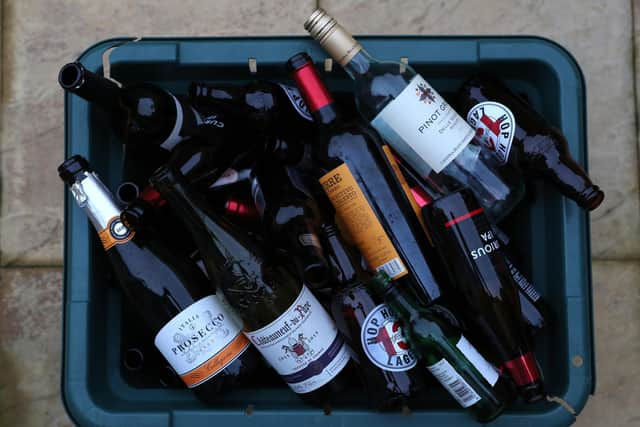Exclusive:Deposit return scheme Scotland: No compensation claims made to Scottish Government over scrapping of DRS
Threats of multi-million pound compensation claims from businesses following the scrapping of Scotland’s planned deposit return scheme (DRS) have so far come to nothing, with ministers confident the taxpayer will not be out of pocket due to the cancellation of the scheme.
Lorna Slater, the Scottish Green minister for the circular economy, effectively scrapped the DRS – which was set to see a 20p charge added to the cost of canned and bottled drinks, returned if the drink was recycled – in June.
Advertisement
Hide AdAdvertisement
Hide AdThis followed months of intense opposition to the plans from small businesses and drinks producers, with the decision taken after the UK Government granted a limited exemption to the Internal Market Act that would have allowed the scheme to proceed, albeit without glass.


Retailers who had purchased ‘reverse vending machines’, which would have taken the used containers and provided the customer with the 20p deposit, had threatened millions in compensation after the scheme collapsed.
However, it is understood ministers are confident no claims will come forward and, to date, no claims have done so.
A Scottish Government spokesperson said: “The UK Government’s 11th-hour intervention left us no choice, but to postpone the launch of Scotland’s deposit return scheme. The Scottish Government remains committed to the delivery of a successful scheme, but the onus is now on the UK Government to make progress so that as much as possible of the investment made by businesses in Scotland can be put to good use.
"We have had no claims for compensation from any company other than some general statements made to the media in June. We also do not believe the actions we have taken, based on engagement with businesses, gives any case for compensation."
Sources within government were dismissive of any potential legal action or compensation claim being made in regards to the scheme’s collapse, with confidence that none would come forward.
The Scottish Licensed Trade Association (SLTA) and the Federation of Independent Retailers were among those suggesting compensation claims could follow, with reports from trade publications suggesting the British Soft Drinks Association were also seeking compensation.
Shahid Razzaq, the Federation’s national vice-president, said no compensation claim was made as “only a tiny number” of their members had purchased reverse vending machines, claiming they were now being sold to shops in the Republic of Ireland.
Advertisement
Hide AdAdvertisement
Hide AdHe said: “It ultimately emerged that only a tiny number of our members felt they had enough confidence in the Scottish Government's deposit return scheme to commit to the major expense of a machine to handle the empty bottles and cans in shops. It appears that shops in Ireland, where a scheme is going ahead in the new year, have bought machines that were destined for Scotland."
Colin Borland, director of devolved nations at the Federation of Small Businesses, did not comment on the question of compensation, but said businesses should not be made to spend more money on the future scheme.
He said: “As uncertainty reigned through the delayed rollout of DRS, so too are businesses left with major questions in the wake of its postponement.
"While it is true that a relatively low number of local retailers will have had the space or resources to enter into contracts to install reverse vending machines, many will have incurred costs elsewhere, not least on the registration fee many dutifully paid.
"As the Scottish and UK governments work together to establish what a joint scheme will look like, it is essential that minimising the disruption and cost to already-struggling smaller operators is a priority.
"This means that those businesses already out of pocket should not be made to shell out any further cash, and that clarity should be provided to them urgently as to when they can expect to see any recompense, if they have not yet been contacted.”
When issuing a limited exemption to the IMA, the UK Government said it planned to introduce a DRS by 2025, one which would be matched in Scotland and Wales. However, Rishi Sunak’s recent comments on net zero policies have thrown this into doubt, with the Scottish Government having no confidence in a scheme being up and running by then.
The SLTA and BSDA both declined to comment.
Comments
Want to join the conversation? Please or to comment on this article.
